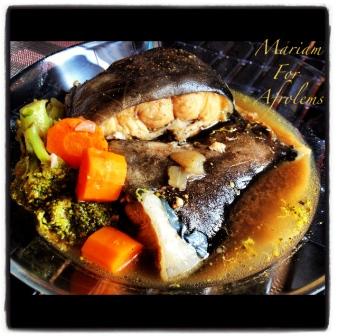Most people agree that eating fish is a healthier option for us than red meat, and the truth is, it really is! Fish is a low fat, high protein food that has a range of health benefits. However, given what we know of fish and its sources today, it is important to clarify the myth that all fish is healthy.
Fish may not always be good for you. Fish can either be incredibly healthy or detrimental to our health, depending on where it’s sourced. There’s a world of difference between fish caught in the wild, and farm bred or farm-raised fish.
The most common types of farm-raised fish are
- Salmon
- Carp
- Tilapia
- Sea bass
- Catfish
- Cod
Why is Farm Raised Fish So Bad for You?
1. Can Cause Inflammation
Farm raised Tilapia has always been a popular source for fish, not only because it’s widely available in the US, but it’s also very inexpensive. It’s known in the food business as “aquatic chicken” because it breeds easily and tastes bland. Tilapia is the perfect factory fish; it happily eats pellets made largely of corn and soy and gains weight rapidly, easily converting a diet that resembles cheap chicken feed into low-cost seafood.
Recent studies have concluded that eating Tilapia may worsen inflammation which can lead to heart disease, arthritis, asthma and a world of other serious health problems. People who have started eating more fish as a way to get their dose of omega-3-fatty-acids and lessen their risk of heart attacks should avoid Tilapia. In fact, scientists have found that the inflammatory potential of Tilapia is greater than that of a hamburger or pork bacon!
2. Contains Cancer Causing Pollutants
Farm bred fish may have at least 10 times the cancer causing pollutants compared to the wild variety. This can most likely be attributed to the feeds used on farm-raised fish. Chicken feces is one of the main ingredients in farm fish feed. Not only that, the transfer of pig and duck waste to fish farms is also a very common practice.
3. Contains Antibiotics and Pesticides
Where do farm bred fish get their antibiotics? The crowded conditions of fish farms cause the fish to be more susceptible to disease. To keep them alive, farm owners give antibiotics to the fish to stave off disease. Farm bred fish are also treated with pesticides to combat sea lice. The pesticides used to treat these fish are so deadly that they have been found to kill wild salmon that are accidentally exposed to them. These pesticides are also eventually released in the ocean where they get into the bodies and systems of other marine life.
4. Low Levels of Nutrients
Many of us consume fish, hoping to reap the omega-3 fatty acid benefits that come with it. However, did you know that the omega-3-acids found in farm raised fish are less usable to our bodies compared to wild bred fish, and they also have a lower protein content. Not only that, because farm raised fish are kept in cages, they have the tendency to contain more fat, and can have a higher concentration of omega-6 acids. The problem with getting too much omega 3 and omega 6 acids is that they may cause inflammation to the body
5. Contains Toxic Chemicals
Dibutylin levels (toxic chemical used in PVC plastics) is said to be 6 times higher in farm raised mussels compared to wild ones. Dibutylin is toxic and can impair immune system function while also contributing to inflammation. Dibutylin may be the reason why we’ve seen a rise in asthma, obesity, allergies and other metabolic disorders in the recent years.
6. Contains Even MORE Toxic Chemicals
Dioxin levels (toxic chemical) are 11 times higher in farm bred salmon compared to wild salmon. Dioxin is actually a very toxic chemical that can contribute to cancer and other complications. The problem with dioxin is that once it enters our system, it can take a very long time until it is let out. The half life of dioxin is about 7 to 11 years.
This is why it is advisable to only eat Wild Caught fish like Wild Sockeye Salmon, croaker etc.. Wild caught salmon for instance is loaded with Omega-3 fats, EPA and DHA, and has incredible health benefits. Plus, Salmon contains astaxanthin (A metabolic building block) which has been shown to be 6,000 times more powerful than Vitamin D at absorbing free radicals.
So to all ye cat-fish pepper soup lovers…BEWARE! Lool.

